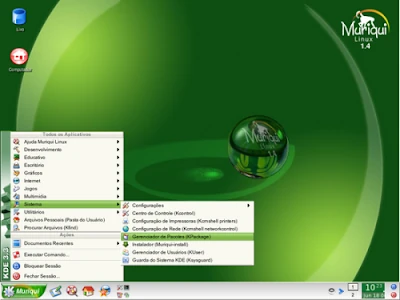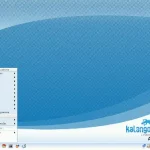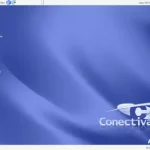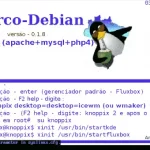Last Updated on: 13th July 2023, 12:34 pm
Web site: www.muriquilinux.com.br (not active)
Origin: Brazil
Category: Desktop, Server
Desktop environment: KDE
Architecture: x86
Based on: Debian
Wikipedia (PT): Muriqui Linux
Media: Live
The last version | Released: 1.4 | October 6, 2006
Muriqui – a Linux distribution based on Debian and KDE desktop environment. It uses Anaconda as its installer of the Fedora project. It is a recent project that aims to facilitate the installation process for end users of a Debian based Linux.
The name Muriqui is an allusion to the primate Muriqui-do Sul or mono-carvoeiro, the largest primate of the American continent, and is among the animals in danger of extinction. The name of the distribution is a tribute to the struggle for the preservation of this heavily endangered species. A third of the remaining population of the Muriquis is found at the Montes Claros farm in Caratinga, home to the Doctum, where the primates were preserved at the initiative of their owners, the family of Feliciano Miguel Abdala. Today the farm is an RPPN – Private Natural Heritage Reserve, where the Caratinga Biological Station was donated to the Brazilian Foundation for Nature Conservation (FBCN), making Caratinga one of the largest preservation areas of this species.
The popular computer project was commissioned by the Ministry of Communications to UFMG in 2004. The idea was simple: low-HD and low-end terminals, with a more powerful server in a telecentre with 10 – 20 desktops. Soon after the Workshop for the presentation of the project at the Rectory of UFMG, in two months, we already had, in Caratinga, the first laboratory, with this philosophy, in use in the educational environment. This was the impetus for the development of Muriqui Linux, which, in its server version, installed the central remote boot server for diskless stations – Diskless Remote Boot on Linux (DRBL). Later, we started to use the LTSP (Light Terminal Server Project), of the developer Jim McQuillan, whom I met in 2005 in Porto Alegre during the 6th. FISL. In the Muriqui version, the word processing environment occurred on the server, other, lighter applications on the client. Several distributions currently support this solution. The LTSP package is part of the official Debian and Ubuntu repository, in addition to the derived derivatives Edubuntu (Ubuntu), K12LTSP (CentOS) and Skolelinux (Debian) and KIWI-LTSP (SUSE).
João Fernando (creator and editor of the Revista Livre Livre), Renato Araújo and André – then students of the Computer Science course at Faculdades Integradas de Caratinga – looked for us in 1998. They wanted to try Linux and they would like the support of the institution. Workstations for testing were made available and it all started. In 1999, all the institution’s laboratory and connection infrastructure was implemented in Linux. The students participated in the installation of the first server, by João Paulo, from Microhard. All other servers were implemented with human resources developed by the project in the institution itself. Of the students who followed the installation, all of them later became tutors who leveraged the absorption of the technology in the institution.
In the following years, many joined the project and became the developers of the Muriqui Linux distro, launched in January 2005 in Teófilo Otoni. In coordination of development to Gicele, the Rômulo (tragically deceased in an automobile accident in the highway of the death – BR 381) and Reinaldo Moreira; the Raphael Valente in the arts; to Raquel Borsari in marketing. The FISL of 2005 marked the national launch of the project, which was to be adopted by the Ministry of Education as the basic distro of the ProJovem project that year. It was installed on 32,000 machines, the first Linux Educational of MEC!
In the development of version 1.4 came the brilliant “boys” Jacson Rodrigues (Jeiks today professor at UFES) and Ronoaldo. Ronoaldo’s brilliance could be attested by the nickname: Harry Potter. Under the baton of the “wizards”, Jeiks and Harry, were born the descendants: ProLinux and VixLinux. This phase, already in Flux, with Jacson Tiola unleashing the Plone CMS, well ahead of its time.
The Muriqui Linux project lost its sustainability when its main developers were hired by the federal government in Brasilia to implement the Free Software project in the federal public administration, starting in 2003.





